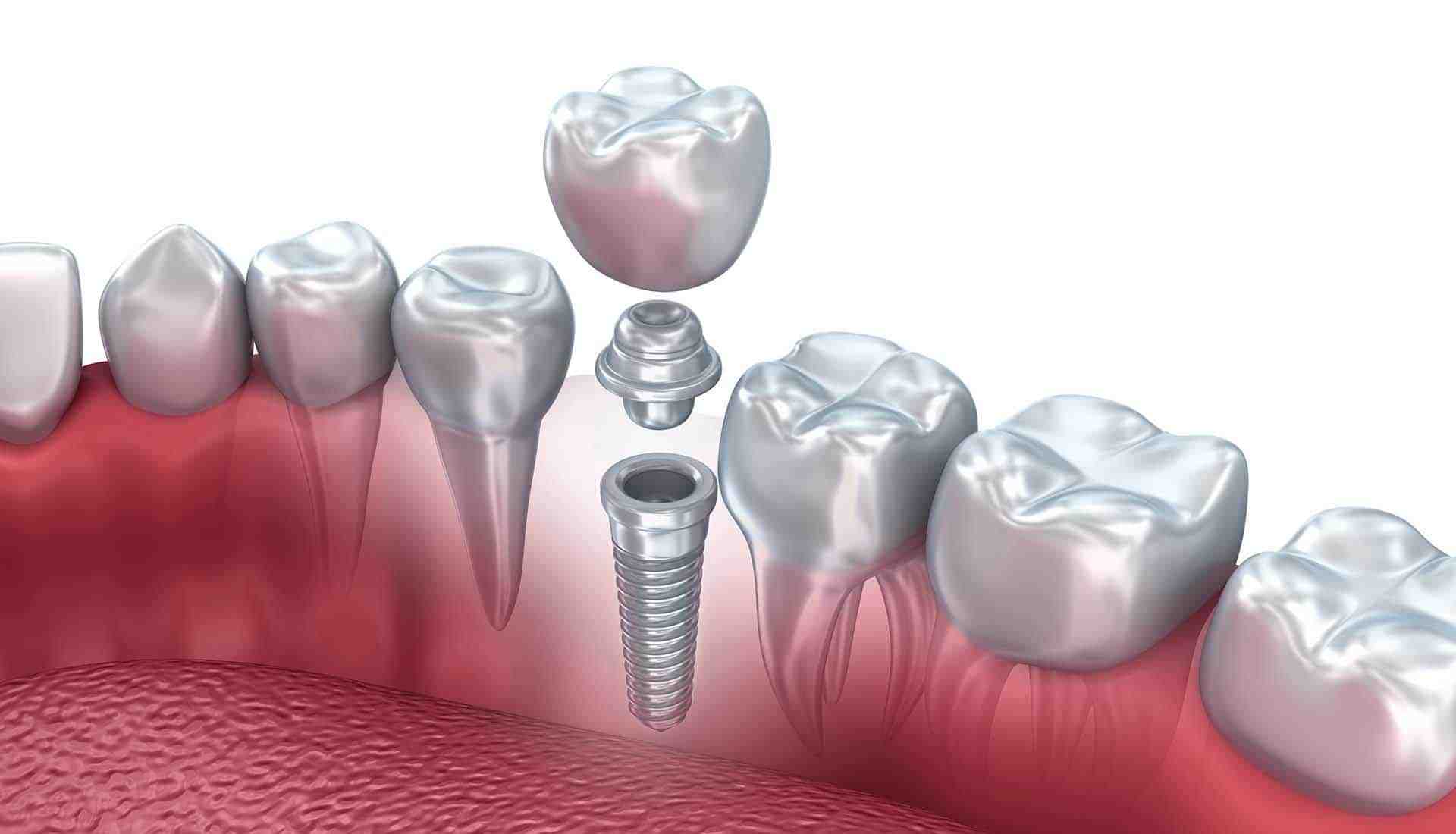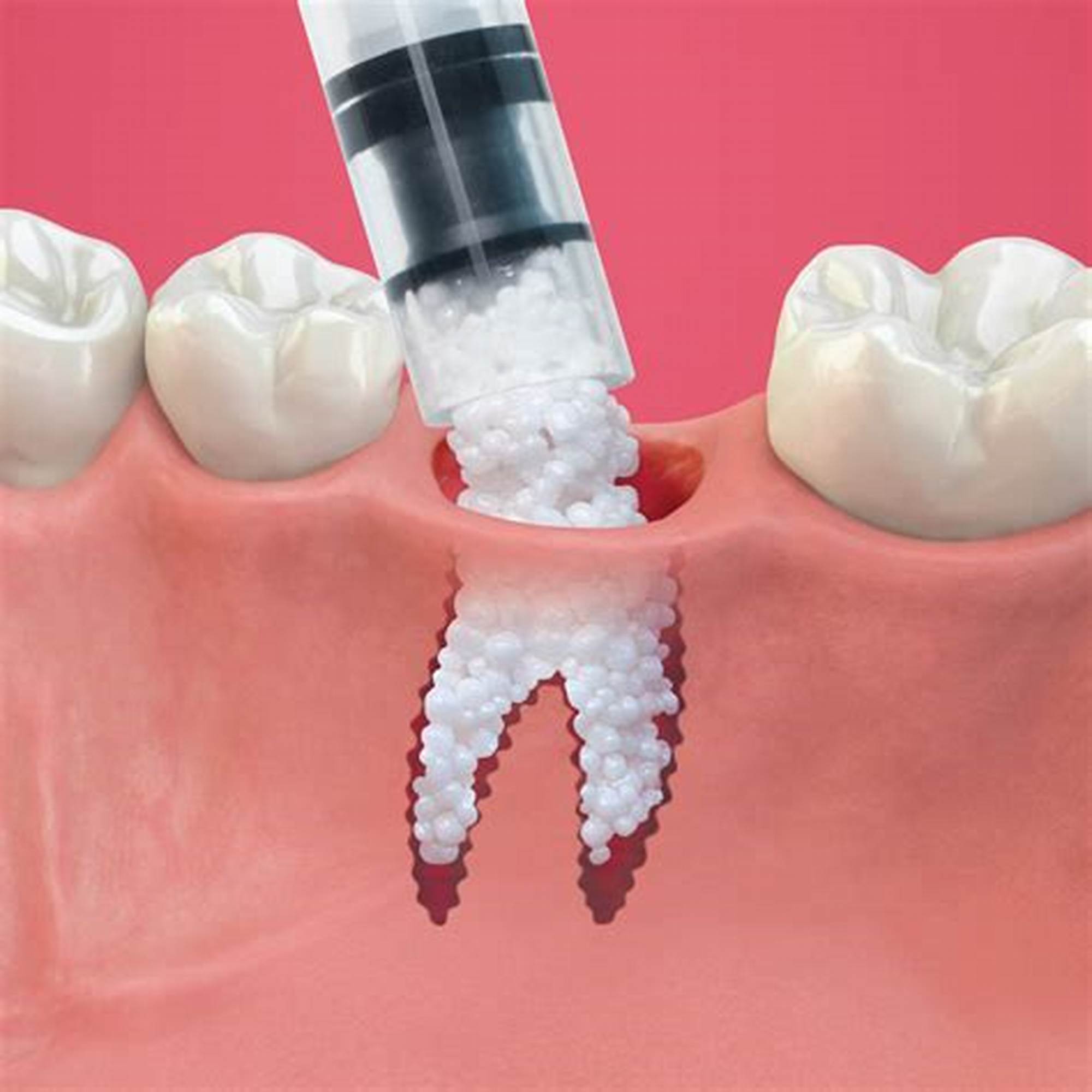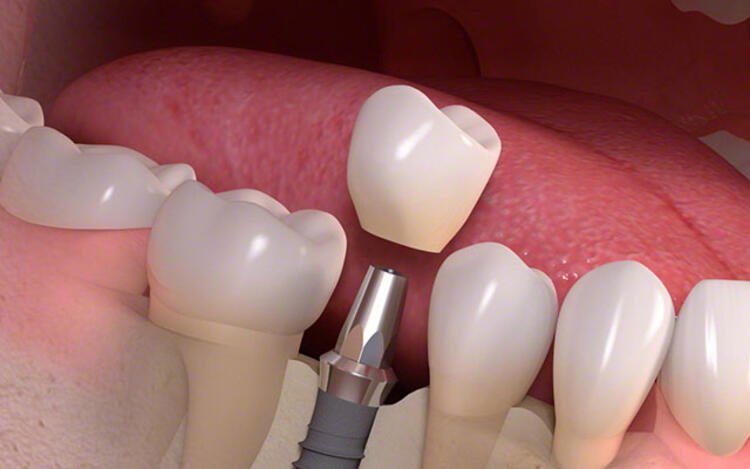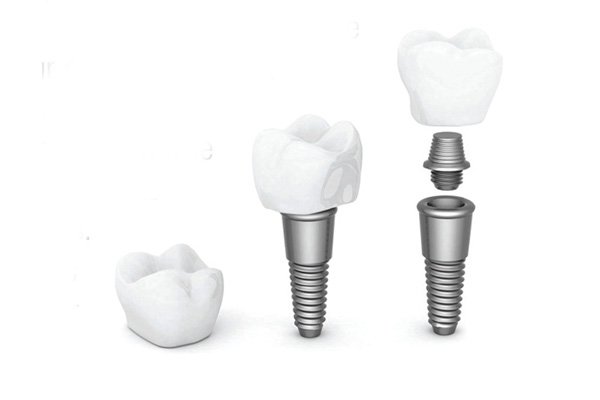Dental implants, dental implants are one of the most advanced and sophisticated modern operations, and it is one of the distinctive operations that will add many developments to the field of dentistry as a whole. In the following article we will get to know together the best possible ways to complete this implantation and how to implant and stabilize it. and many other details that we will get to know, so follow us.

What is dental implant surgery?
Losing a tooth, molar, or even more than one is a difficult stage that has unfavorable consequences. It is necessary for the attending physician to determine the causes that led to tooth loss, and from here the dental implant surgery was discussed, which gives an ideal and satisfactory result in many cases.
Dental implant surgery is known as one of the modern methods that aim to compensate for lost teeth, whether due to fracture or decay, by implanting new metallic implants in place of damaged tissues that closely resemble natural teeth in shape and performance.
“Flexible financial options and comfortable payment plans for dental implants at the Dental Care Medical Center“.
Before we get to know the conditions that make the doctor have to place bone before implantation, let us first get to know the steps of the implant process and the stages it goes through, which are as follows in order:
After the doctor’s examination and taking appropriate x-rays to see the bones well, and evaluating the condition of the tooth and its position in relation to the nerve canal if it is lower and in relation to the sinuses if it is upper. In some cases, CT scans may be required to help the doctor assess the quality and quantity of bones present in the implant area.
The amount of bone is determined according to each case. Some may need a little that the doctor places during the implant procedure, while others may need a large amount so the doctor waits for some time until bone growth is complete, then completes the implant. For more information about Korean dental implants click here.

When do we resort to bone grafting before implantation?
There are some reasons that drive a person to undergo dental implant surgery, including:
There are some conditions that must be met in the person undergoing the implant in order to complete the dental implant operation, including:
In addition to the above points, the person undergoing the implantation must inform their doctor about any medical condition they are going through and all supplements and medications they are taking, and inform him of previous surgeries they have undergone, including previous dental implants, if any. In this case, the treating physician may prescribe certain types of antibiotics to protect him from infection and inflammation.
Diabetic patient and dental implants: Diabetes patients are among those at high risk of dental implant failure, and many doctors may refrain from performing the procedure for them at all. This is because they have great difficulty in wound healing compared to healthy individuals, and therefore it is difficult for their gums and bones to heal. By the same token, a patient with osteoporosis should not undergo dental implants as the two do not go together in the same person, due to the difficulty of bone healing and fragility.
Smoking and dental implants: Heavy smokers who consume more than ten cigarettes a day are not qualified at all to undergo dental implants, and are at high risk of implant failure, similarly with alcoholics, cancer patients, heart patients, high blood pressure patients and cancer patients who have undergone radiation therapy in the head or neck area.
Dental implants are relatively long-lasting successful operations compared to other alternatives, ranging from 15 years and above with no maximum limit. The titanium implant may fall out due to some problems or reasons later, at which point it is possible to re-implant if the first implant encountered problems.
“Restoring lost tooth function and controlling speech and chewing through dental implants in our Dental Care Medical Center.”

How long do dental implants last?
Dental implantation involves many steps that the doctor performs in order, as follows:
After the widespread prevalence of dental implants, many people wonder if they have harms or what are the risks resulting from this surgery and its side effects? The answer to these questions is that of course, like any surgery, it has some side effects and complications that we must pay attention to. This is evident in the relationship of dental implants to the sinuses, and their close association with them, as most patients with dental implants, especially in the upper jaw, face problems related to the sinuses. The risks of dental implant surgery include:

What are the risks of dental implants?
Dental implantation is done in three stages and may take between three to six months for the patient to fully recover. The patient should be sure to visit the dentist every six months for follow-up and to inform him of any changes that occurred with him. It is important to eat soft and easy to chew foods until the wound heals completely and the tissues surrounding the implant integrate with it.
After the widespread prevalence of dental implants to a great extent, people seek to know the best type of them. In order to determine this, it should be known that there are four main factors that have a major role in evaluating the situation and controlling it, including:
The appropriate age to perform dental implants starts from the age of 18 when the bony growth of the jaws is completed. It is best not to perform dental implants before this age due to jaw growth that is affected by the placement of implants or prostheses. The same goes for people over 75 years of age or suffering from certain health conditions and diseases.

What is the appropriate age for dental implants?
The normal success rate of dental implants ranges between 95% to 100% and depends on the surgeon’s view of the case and selection. The operation may fail with a rate ranging between 8% to 10% shortly after or perhaps after several months.
The most important things that indicate the success of a dental implant are that the gums are free of any disease and are in good condition, that the patient does not have a problem chewing with the implanted tooth, but things are going well with him, not feeling pain in the implant area and the tooth does not move or get loose from its place.
One of the most important things to learn about is post-dental implant procedures, which are not a source of pain at all as they are performed under anesthesia, and the patient can resume their normal life immediately after the operation.
The natural dental implant procedure takes between half an hour in most cases up to 3 hours depending on the number of teeth being implanted. If the body rejects the implant and it comes out of the patient’s body, it is replaced with another without any problems.
Dental implantation may be done in one stage or multiple stages, both of which may make the patient feel uncomfortable due to side effects that appear after the operation, including:
If the swelling and pain increase, the patient should return to the attending physician to prescribe painkillers and anti-inflammatory drugs with some antibiotics to avoid infection and inflammation. It is necessary for the patient to follow up after each stage of dental implantation with the doctor to ensure that things are going well. The person will need to eat soft foods until the implant site heals completely. In most cases, the doctor resorts to using sutures that dissolve on their own, but if not, he will follow up with the doctor to determine when to remove them.
The person who has undergone the implantation should follow some instructions that help maintain the health of the implanted teeth, including: maintaining the mouth and gums clean, cleaning the natural and implanted teeth by cleaning them from the corners and angles, avoiding habits that harm the teeth and avoiding chewing hard things like ice and hard candy which may harm the natural teeth and break the crown of the implanted tooth, and finally avoiding chewing tobacco and caffeine products and taking appropriate medications for this matter.
“Regaining self-confidence and an attractive smile through dental implants at ourThe Dental Center
Fear of Dental Implants, Dental implants are a common medical procedure in our current world to replace damaged teeth. However, many people feel afraid of this
The Best Color for Dental Veneers, The specialist dentist determines the optimal color for the person based on the degree of their skin tone and teeth color.
Dental Implants without Surgery, having complete information about any modern medical procedures such as dental implants without surgery makes you take the